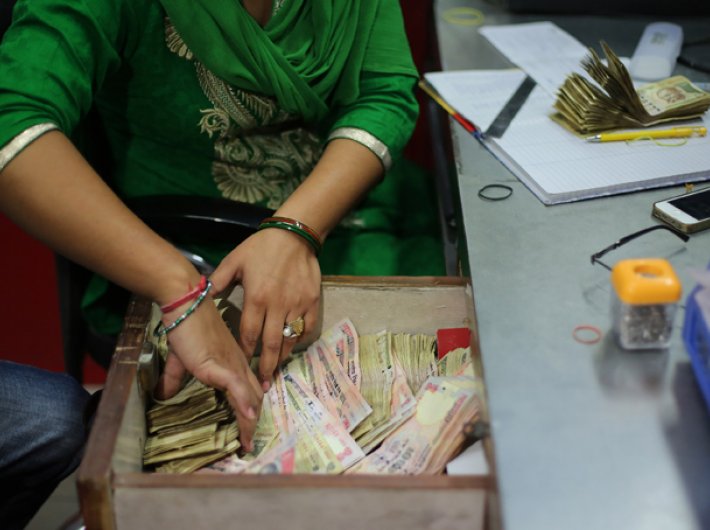False dichotomy of for-or-against wilfully ignores nuances, forget implementation blunders
“It’s a war; it’s a mahayajnya. You have to decide on whose side you are.”
-- M Venkaiah Naidu, in parliament on November 17
In its well-intentioned but misconceived war on black money, the government has obviously bitten off more than it can chew.
A wide spectrum of people and political leaders (including PM Narendra Modi’s bitter foe Nitish Kumar) had expressed support to the move. At that point, only economists like Ashok V Desai were criticising the government for what they thought was a foolhardy move. Social media was full of god-natured jokes about housewives and old notes.
That was because most of us, including the usual suspects and Modi critics, reposed faith in the government, for a bold move that had apparently no personal motive. We believed in the image of Modi as an efficient administrator. We went by the impression that Modi would have done his homework in minutest detail. We were prepared for a couple of days of hardship. We thought after a day or two of queues, most of the people will have at least the basic petty cash in hand to carry on the day-to-day transactions – till the full normalcy returns. We understood that full normalcy would of course take time, and of course it would take time for new cash to reach every nook and corner of the country, but in the interim we would be able to manage the basic necessities of life.
What we didn’t know was that the government had gone ahead and taken one of the boldest decisions in independent India with no homework. For example, it took the government close to a week to realise that most ATMs needed to be recalibrated to handle new notes – something it should have done before. Or, close to a week after the move, the finance minister himself had no clarity on the number of times a citizen can exchange old notes – the ink decision came a full week later.
Also read: Did anybody do any homework before launching this surgical strike?
It is this – utterly astounding lack of planning to meet the challenges that has left the people angry, that has left to a sizeable number of people going to sleep without food, that has left, albeit in rarest circumstances, at least four people dead.
And the response from government to people’s woes? Either you are for the decision or against it.
At a momentous and critical time like this, the government could have engaged the opposition (it showed readiness on the first day) and the people (more than 80 percent are strongly in favour of fighting black money). Instead it has chosen a confrontationist and divisive attitude – something natural and altogether expected when you think about it.
Pushed to the wall, the BJP leadership is taking the way of the trolls it has trained over the years. So, an economic and administrative matter is also beyond debate – like matters of faith. When the prime minister compared the demonetisation to mahayajnya, it might have been a one-off expression without any subtext but now a union minister has repeated it in parliament.
Morarji Desai did not have to resort to such moral posturing but now the very first statement from the BJP president drew analogy of a surgical strike (think of Pakistan) – not to mention the official announcement which also spoke of terrorism. A former BJP president preferred dollars for a donation from a fake arms dealer, but David Headley apparently prefers Indian rupees.
So don't ask why Rs 2,000 notes are being introduced at all, why they were not introduced earlier, why the promised timeline for return to normalcy is getting longer by the day. Basically, have faith, don't ask any questions. If you do, you are defending black money.
When Sohan Darro, a poor man in Bastar, asks the bank official that there is nothing to eat at home, he does not know – but Venkaiah Naidu is sure – that he is not complaining about all the transition mismanagement but he is taking side of the anti-national, black-money hoarding, terrorist funders.

